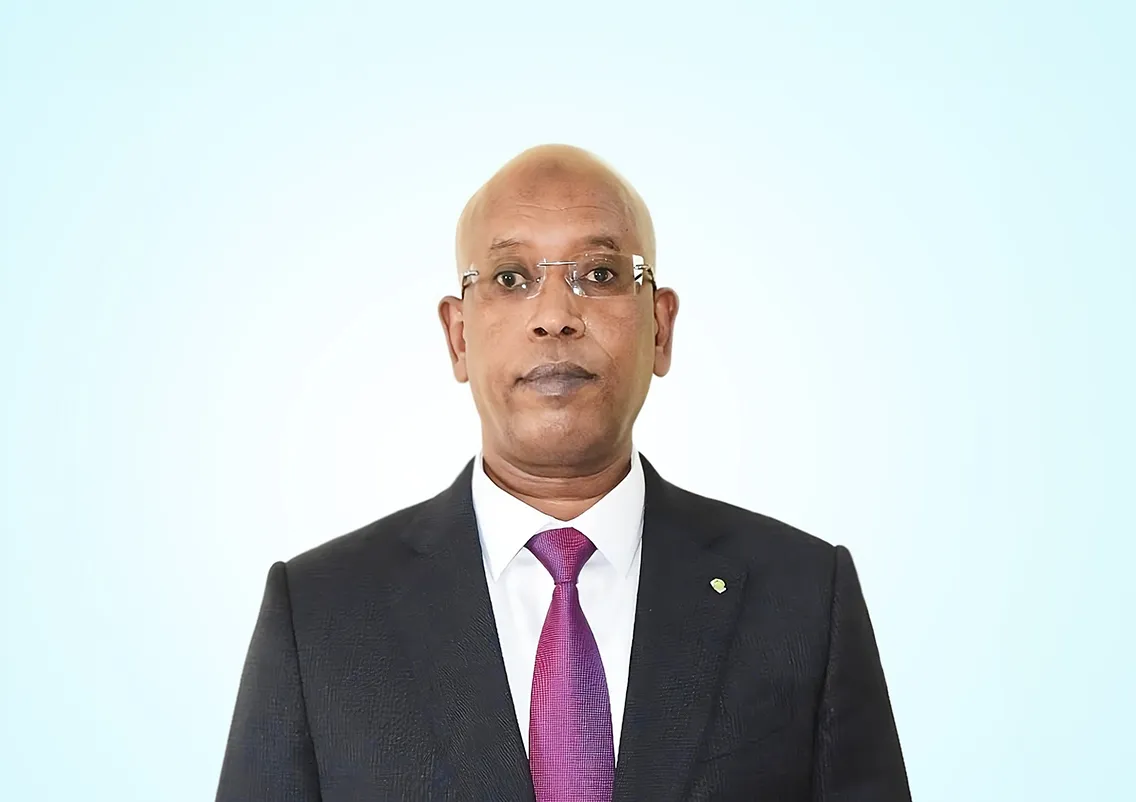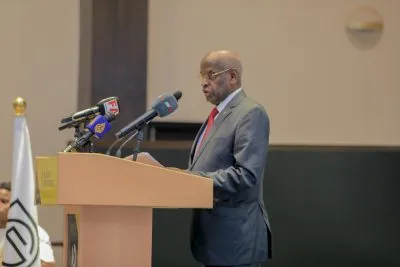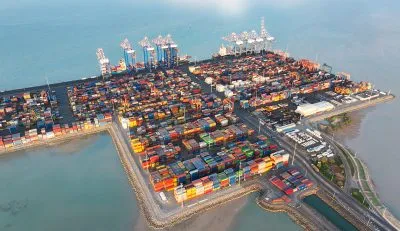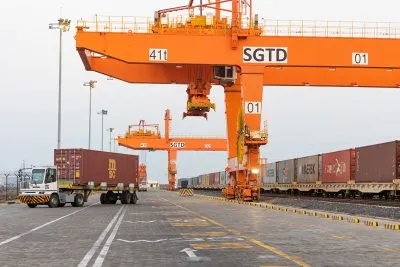If you had to give foreign investors attending the second Djibouti Forum an initial insight into Djibouti’s attractions, what aspects would you highlight?
Djibouti is today one of the most promising strategic hubs in Africa, and this second edition of the Djibouti Forum is a unique opportunity for foreign investors to better understand the opportunities offered by our country.
Despite the tensions in the Red Sea, its strategic position on the Suez/Bab el-Mandeb axis remains a major asset. But beyond its geography, the country offers a stable business climate, an attractive and rapidly modernising economic and regulatory framework, and monetary stability thanks to the fixed parity with the dollar. It is also a gateway to a regional market of 120m consumers, particularly thanks to its trade with Ethiopia.
What is the status of diversification into sectors such as finance, digital technology and tourism?
Economic diversification is an absolute priority for Djibouti, because it not only reduces our dependence on the port and logistics sector, but also creates long-term employment and added value opportunities.
We have already begun major transformations in several key sectors. In finance, Djibouti aspires to become a regional financial centre. The modernisation of our banking system, the development of Islamic finance and the emergence of fintech services are strategic priorities.
In terms of digital technology, we have the most efficient infrastructure in East Africa, thanks to our position as a hub for submarine cables connecting several continents. The government and the private sector are investing in digitalisation, cybersecurity and the development of technology start-ups.
Tourism is also one of the government’s priorities in its drive to diversify the economy…
Tourism is booming, driven by the country’s natural and cultural wealth. Our unique landscapes, such as Lake Assal, the Gulf of Tadjoura and the exceptional seabed of the Red Sea, are attracting more and more visitors. We are working to improve hotel infrastructure, develop ecotourism and promote Djibouti as a niche destination for adventure tourism and business tourism.
Many young Djiboutian entrepreneurs are already investing in this sector, and we encourage foreign investors to follow this dynamic.
But it is also crucial to develop light industry, particularly agro-industry, which is another strategic lever: by developing local production and focusing on the processing of agricultural products, we could reduce our dependence on imports and improve our food security.
What impact have global events such as the war in Ukraine and tensions in the Red Sea had on the economy?
Global events have had a direct impact on our economy. For example, the cost of a container from China has risen from $4,000-4,500 to $12,000. This increase has immediate repercussions on product prices and the competitiveness of companies.
The tensions in the Red Sea have also disrupted maritime transport. Several companies have suspended their services or bypassed the Suez Canal. Although Djibouti remains a key transhipment point, these global disruptions are weighing on our economy, which relies heavily on services.
The cost of energy is a major obstacle to the competitiveness of businesses. What concrete progress have you seen in making energy more accessible?
We are working with stakeholders in the sector to find solutions. Significant progress has been made with wind power, the Grand Bara solar projects and geothermal energy under development. However, reform is essential: without a significant reduction in costs, it will be difficult to boost the economy and attract investment. We encourage the authorities to accelerate measures, particularly for the private sector.
What role can the private sector play in the economic transformations to come?
The private sector is essential. It is at the heart of the economy and will remain a key driver of the country’s development. We will continue to be useful not only to the country, but also to our companies. We have a central role to play, in particular in catalysing innovation, attracting investment and creating employment opportunities.
Given youth unemployment, which remains a major challenge, what can be done to accelerate job creation?
Youth unemployment is a priority issue for our country that requires structural and innovative responses. I believe that the development of light industry is a concrete response to this challenge. Creating industries, particularly light industries, would not only make up for the lack of jobs but also support the growth of our economy. It is an important lever for developing employment, particularly for young people, and gives Djibouti the opportunity to diversify economically.
How can cooperation between local small and medium enterprises (SMEs) and foreign investors be strengthened?
Cooperation between local SMEs and foreign investors is a key lever for the growth, skills transfer and competitiveness of Djiboutian companies.
The Chamber of Commerce plays the role of economic ambassador at international trade fairs and events, particularly through the Djibouti International Fair, which we organise every two years.
But to structure this dynamic, the public and private sectors must establish a common strategy with a clear vision of the economic priorities for the next 10 years.
A strengthened dialogue will make it possible to prioritise the strategic sectors and better target the opportunities.
What are the main obstacles to the development of the private sector in Djibouti today?
The main challenges facing the private sector are the cost of electricity, limited access to finance, the lack of training among certain sections of the population, and the small size of the local market.
The market in Djibouti is limited, and without exports it is difficult to envisage real growth.
Fortunately, we have the advantage of our proximity to Ethiopia, which allows us to work towards better regional integration.
What is the main challenge Djibouti must address to increase economic growth in the coming years?
Djibouti has made remarkable progress in recent years, thanks in particular to strategic investments in port infrastructure, logistics and energy.
However, in order to truly change scale economically and establish ourselves as a leading regional hub, we must meet a priority challenge: diversifying our economy while strengthening our attractiveness to investors and the competitiveness of our companies.
With this in mind, a major challenge is to reduce the cost of electricity. It is imperative that the cost of electricity generation be similar to that of Ethiopia. This would make it possible to divide the cost of electricity by five or even six, which would contribute to the competitiveness of the national commercial centre.
At the same time, we must modernise our business environment and accelerate the integration of digital technology in order to facilitate the creation of remote businesses, particularly for foreign investors.
Do you have one last thing to share about Djibouti’s specific characteristics?
We are a small country in size, but a major strategic player on the regional and international economic stage – as evidenced by the recent election of Djibouti’s foreign minister, Mahmoud Ali Youssouf, as head of the African Union Commission.
In addition, Djibouti is distinguished by the richness and diversity of its cultural heritage, which is a crossroads between the Arab, African and European worlds.
The only French-speaking nation in the region, the country is a haven of peace where religious tolerance and attachment to the country are deeply rooted.
Want to continue reading? Subscribe today.
You've read all your free articles for this month! Subscribe now to enjoy full access to our content.
Digital Monthly
£8.00 / month
Receive full unlimited access to our articles, opinions, podcasts and more.
Digital Yearly
£70.00 / year
Our best value offer - save £26 and gain access to all of our digital content for an entire year!

 Sign in with Google
Sign in with Google 



